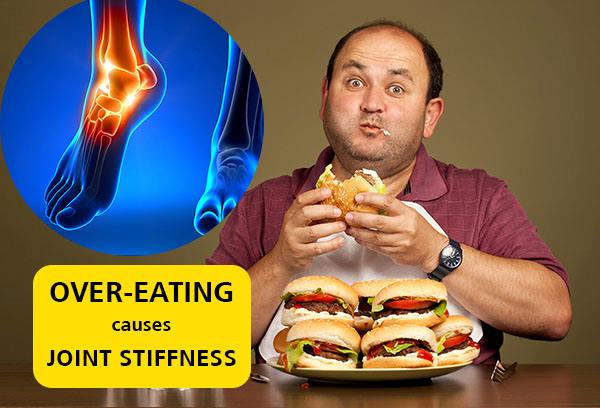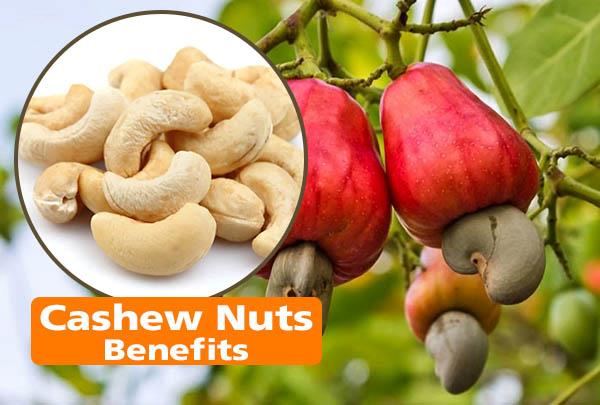Overeating has become an increasingly common issue in our modern society. The excessive consumption of food not only affects our waistlines but also has a significant impact on our overall health. Beyond the obvious concerns about weight gain and digestive issues, overeating can also have a significant impact on our joint health. In this in-depth article, we will delve into the relationship between overeating and joint stiffness, shedding light on this often-overlooked aspect of how overeating causes joint stiffness. Join us on this informative journey to discover how overeating can cause joint stiffness and explore effective solutions to mitigate this issue.
Please add your email to get a notification of the latest article
Table of Contents
The Physiology of Overeating
When we indulge in excessive food consumption, our body undergoes various changes. These changes extend beyond the obvious ones like weight gain and digestive discomfort. The connection between overeating and joint stiffness begins with the physiological changes that occur during and after a large meal.
Overeating Causes Joint Stiffness: Find The Hidden Link
Overeating and joint stiffness may seem unrelated at first glance, but a closer look reveals a surprising connection. When we consume more calories than our body needs, several physiological changes occur that can directly affect our joints. Let’s explore these mechanisms in detail.

Inflammation and Joint Health
Overeating often leads to the consumption of highly processed and unhealthy foods, which are rich in trans fats and sugar. These foods can trigger inflammation in the body, including the joints. Inflammation is the body’s natural response to injury or illness, but chronic inflammation caused by a poor diet can harm joint tissues, leading to stiffness and discomfort.
Weight Gain and Joint Pressure
One of the most obvious consequences of overeating is weight gain. Excess body weight places added stress on the joints, particularly those in the lower body, such as the knees and hips. This increased pressure can accelerate joint wear and tear, contributing to stiffness and pain.
See also: 12 Scary Health Conditions Cause Gout
How to Protect Your Joints
Now, let’s explore some creative and unique ways to protect your joints from the effects of overeating.
Mindful Eating for Joint Health
One of the most effective ways to protect your joints from the consequences of overeating is by adopting a mindful eating approach. Mindful eating involves being fully present during your meals, paying attention to your body’s hunger cues, and savoring each bite. By doing so, you can prevent overindulgence and, subsequently, excess weight gain. See also: Low Purine Diet for Arthritis
The Joint-Friendly Diet
Your diet plays a pivotal role in protecting your joints. Opting for a joint-friendly diet can not only help you shed those extra pounds but also provide your joints with the nutrients they need to stay healthy. Incorporate foods rich in omega-3 fatty acids, such as salmon and flaxseeds, as they have anti-inflammatory properties that can alleviate joint stiffness.
Exercise to the Rescue
Exercise is a powerful tool to combat the joint stiffness caused by overeating. Engaging in low-impact activities like swimming or cycling can help you shed excess weight while being gentle on your joints. Strength training exercises can also be beneficial, as they improve joint stability and support.
Achieving and Maintaining a Healthy Weight
Achieving and maintaining a healthy weight is crucial for joint health. By shedding excess pounds, you reduce the stress on your joints, preventing stiffness and discomfort. Ensure you set realistic weight loss goals and stay consistent with your efforts.
The Role of Hydration
Staying hydrated is often overlooked when it comes to joint health. Water helps lubricate your joints, keeping them flexible and pain-free. Make it a habit to drink an adequate amount of water throughout the day to support your joints.
Transition Word: Now, let’s explore some unique lifestyle changes that can protect your joints.
Lifestyle Changes for Joint Health
Apart from mindful eating, exercise, and hydration, there are other lifestyle changes that can protect your joints from overeating-related stiffness. Consider incorporating relaxation techniques such as yoga and meditation into your daily routine to reduce stress, which can exacerbate joint discomfort.
10 unique tips on protecting your joints from overeating
In addition to the comprehensive strategies outlined in the article about safeguarding your joints from the impact of overeating-related stiffness, let’s explore some distinctive tips to further elevate your joint health:
- Incorporate Collagen-Rich Foods: Incorporating collagen-rich foods like bone broth, collagen peptides, and gelatin into your dietary regimen can do wonders. These foods naturally enhance joint health by bolstering the integrity of your joints’ cartilage and connective tissues. Remarkably, they can be your allies against the issue of Overeating Causes Joint Stiffness.
- Anti-Inflammatory Spices: Harness the potent anti-inflammatory properties of spices such as turmeric and ginger by integrating them into your culinary creations. By doing so, you can effectively combat Overeating Causes Joint Stiffness.
- Joint Supplements: To ensure your joints stay well-lubricated and discomfort remains at bay, initiate a conversation with your healthcare provider about the potential benefits of joint supplements. Well-known options like Glucosamine and Chondroitin might be particularly suited to address the challenge of overeating causes joint stiffness.
- Post-Meal Walks for Digestive Comfort: Following your meals, embark on leisurely strolls. This simple yet effective practice not only aids in digestion but also wards off post-meal lethargy. Remarkably, it aligns with the goal of enhancing joint mobility and countering the effects of overeating.
- Ergonomic Workspaces: If you’re employed in a desk-centric profession, prioritize the ergonomics of your workspace. Proper ergonomics can dramatically diminish the strain experienced by your joints, particularly in the neck, shoulders, and wrists. This action is consistent with the ethos of mitigating the issue of Overeating Causes Joint Stiffness.
- Invest in Proper Footwear: Make an investment in footwear that provides impeccable support and cushioning. This becomes especially crucial if your daily routine demands prolonged periods of standing or walking. Such footwear can be a key element in relieving pressure on your knee and hip joints.
- Apply Hot and Cold Therapy: Hot and cold therapy, characterized by the alternating use of hot and cold packs on ailing joints, can offer rapid relief. The application of heat serves to relax and loosen tissues, while cold effectively reduces inflammation. This approach resonates with the idea of alleviating joint stiffness due to Overeating Causes Joint Stiffness.
- Experience the Healing Power of Regular Body Massages: Consider incorporating regular massages into your self-care routine, with a focus on areas that encompass your joints. The benefits are manifold: enhanced blood circulation, reduced muscle tension, and promotion of joint flexibility. This aligns seamlessly with the overarching goal of addressing Overeating Causes Joint Stiffness.
- Prioritize Adequate Sleep: Quality sleep holds the key to holistic well-being, including joint health. Make it a priority to obtain sufficient restorative sleep each night, as this rejuvenates your body and facilitates the repair of joint tissues, reinforcing the stance that Overeating Causes Joint Stiffness.
- Embrace Mind-Body Practices: Explore mind-body practices like tai chi and qigong, which gently enhance your body’s balance and coordination. These practices are exceptionally joint-friendly, fostering relaxation and mitigating stress, which are vital components of joint health, as corroborated by Overeating Causes Joint Stiffness.
Remember that individual responses to these joint health strategies may vary, underscoring the importance of seeking personalized advice from a healthcare professional. By embracing these unique tips in conjunction with the core strategies outlined in the article, you can proactively safeguard your joints and maintain their flexibility and comfort, effectively countering the challenge posed by “Overeating Causes Joint Stiffness.”
Joint Stiffness Treatments
let’s explore some effective treatments for joint stiffness.
Physical Therapy for Improved Mobility
Physical therapy or Physiotherapy is a proactive approach to managing joint stiffness. A trained therapist can design a customized exercise plan tailored to your specific needs. These exercises aim to enhance joint flexibility, strengthen supporting muscles, and alleviate discomfort, all while acknowledging the role of overeating in causing joint stiffness.
Hot and Cold Therapy for Quick Relief
Heat and cold therapy can offer swift relief from joint stiffness. Apply a cold compress or bag of ice to the stiff joint for 15 to 20 minutes several times a day can help reduce inflammation or swelling and ease the joint into movement. Heat is also therapeutic to joints and muscles. Use a heating pad, hot water bottle, or warm water from a shower or bath to relax muscles and increase circulation[3].
Orthotics
Devices such as braces, splints, and shoe inserts may be effective in relieving joint pain by shifting weight away from the damaged area of the joint, easing stress on a joint, or relieving swelling by compression[1].
Medications for Pain Management
In some cases, medications prescribed by a healthcare professional can be instrumental in managing joint stiffness. Nonsteroidal anti-inflammatory drugs (NSAIDs) can help alleviate pain and reduce inflammation, making them valuable tools in addressing joint discomfort related to overeating.
Supplements for Joint Support
Certain supplements can aid in joint support. Glucosamine and chondroitin are popular choices known for promoting joint lubrication and reducing discomfort. When considering supplements, it’s advisable to consult with a healthcare professional to ensure they align with your specific needs.
Can you get joint pain by not eating enough?
Yes, not eating enough can lead to joint pain. Nutrient deficiencies, particularly in vitamin D, calcium, omega-3 fatty acids, protein, antioxidants, and collagen, can weaken bones, increase inflammation, and put stress on the joints, resulting in discomfort. However, joint pain can have various causes, so it’s essential to consult a healthcare professional if you suspect dietary factors are contributing to your joint pain.
Conclusion
However, overeating and joint stiffness may not seem directly related, but the connections between them are undeniable. Recognizing how overeating causes joint stiffness and taking proactive steps, such as making wiser dietary choices, staying physically active, and ensuring adequate hydration, can safeguard your joints and promote your overall well-being. Remember, moderation and mindful eating are key to preventing the discomfort and limitations associated with joint stiffness. So, take charge of your health today, and say goodbye to the negative effects of overeating on your joints. Your body will thank you with increased mobility and comfort.
Please give your valuable feedback here





One thought on “Overeating Causes Joint Stiffness: 10 Tips to Protect Your Joints”